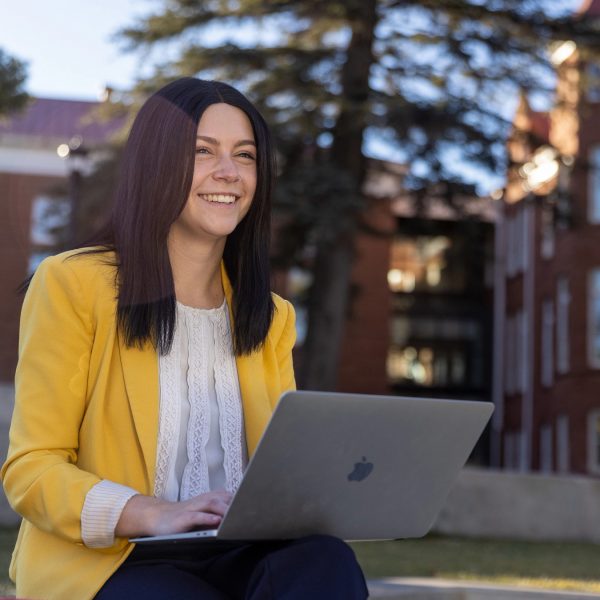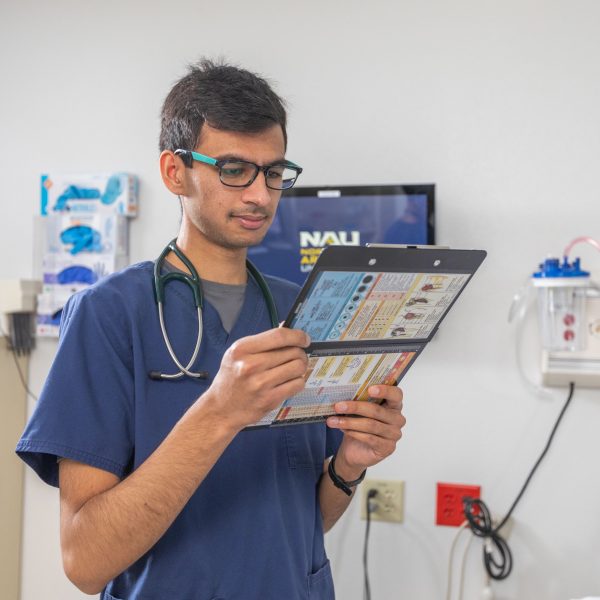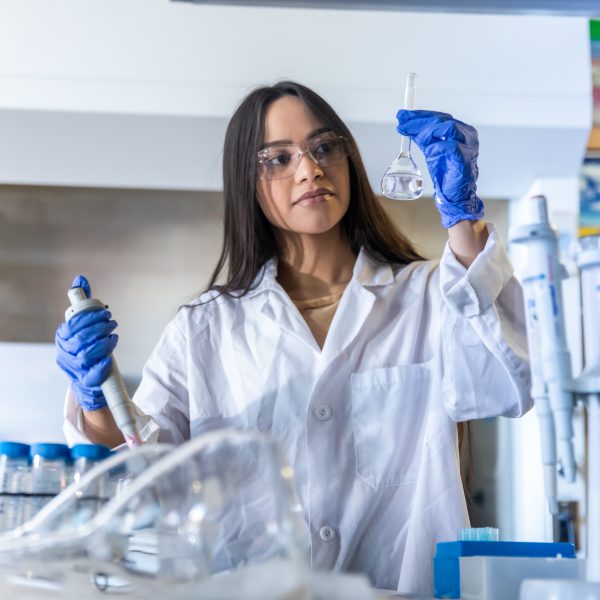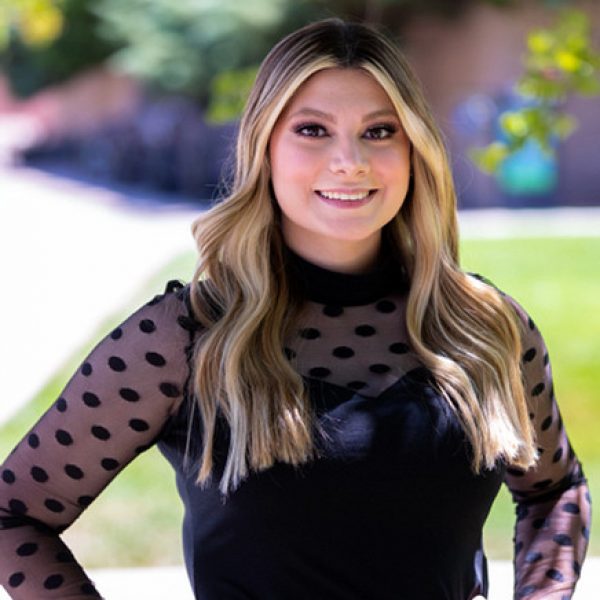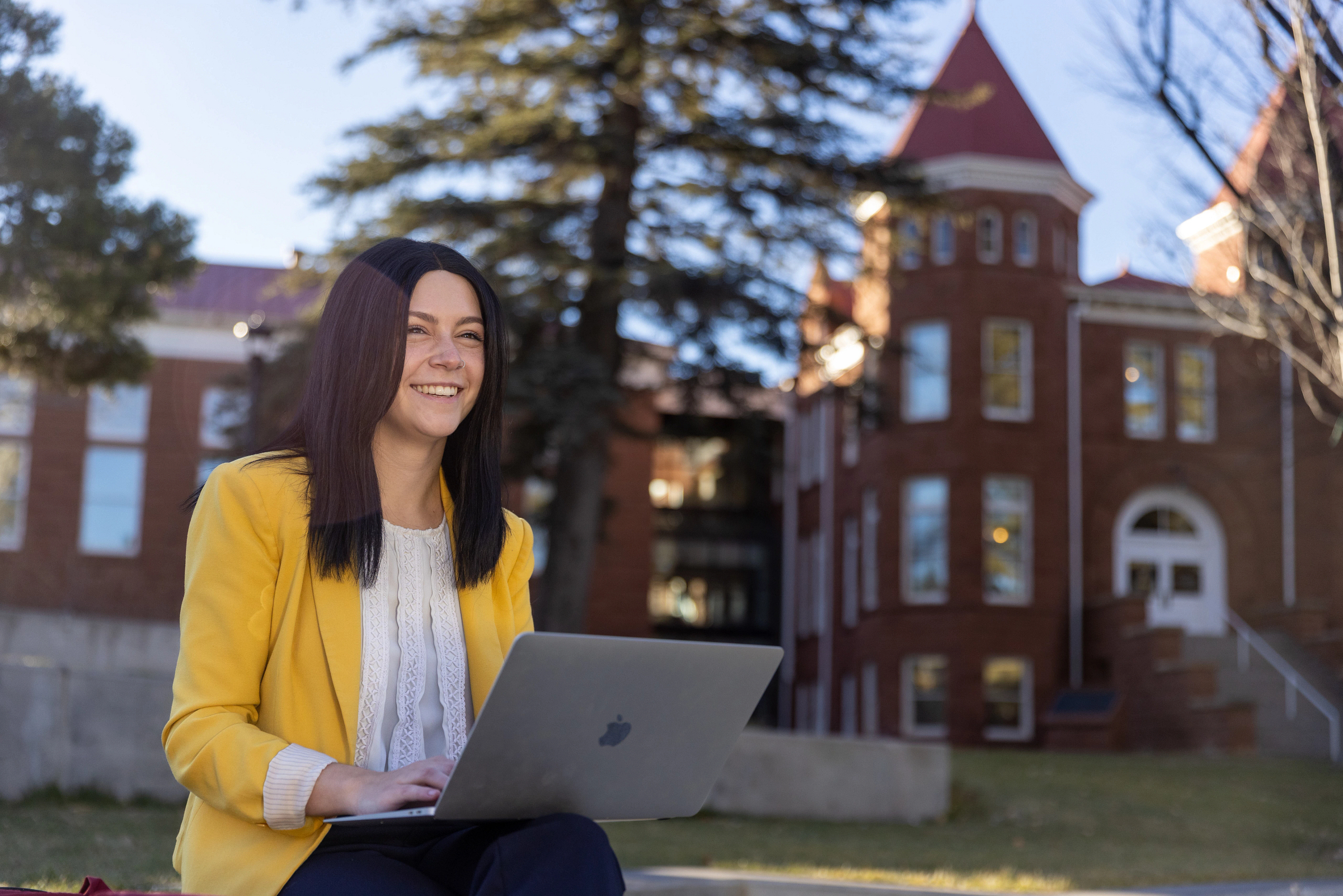
Northern Arizona University student Rachel Kanyur is the newest student member of the Arizona Board of Regents (ABOR). Her desire to fairly represent the state’s undergraduate population drives her commitment to Arizona students and is bolstered by support from the NAU community.
Rachel Kanyur, an Exercise Science major and Honors College student in her junior year at NAU, was appointed to ABOR as a student regent in July of 2021. A Phoenix native, she is well-prepared to rise to the challenge of representing the Arizona student body through her work with the NAU Student Health Advocacy Committee and previous experience with the organization TeenPact. Her objective in attaining the role has been a simple one: to ensure that the collective voice of her fellow students is heard.
“My main goal is to make sure that students have support on campus. That they’re able to have the tools that they need to enroll in college if they want to pursue that. That they have support on campus, so then they’re able to finish those degrees, go back in their communities, and contribute in whatever ways their career allows them to,” Kanyur said.
Kanyur acknowledged that she and the other student regents play a unique and critical role within ABOR.
“Something that Student Regent Nikhil Dave and I have been able to do is give the perspective of what it’s actually like to be a student on campus. When ABOR members have questions about, ‘how did this decision affect students,’ or, ‘what was the process like of applying to college; applying for FAFSA,’ that’s something that they haven’t been involved in recently.”
Though a student, Kanyur’s input carries weight in dialogue with other ABOR members.
“I was very pleasantly surprised that the other board members were willing to ask me questions about my experience and were curious to know what that was. Because a lot of it is these very serious overarching issues, where it could just be a discussion that happens without a student involved,” Kanyur said. She values her ability to advocate for her peers.
Currently, Kanyur acts as a liaison between ABOR and the student governments of universities across the state, “so when there are debates concerning tuition setting or opening up a new program for students, I have the most information that I can about how that’s going to support students—because, at the end of the day, that’s why I’m doing this,” she said.
It’s a daunting role, but Kanyur takes it in stride, and knows that it’s all worthwhile. “I think that it’s been very rewarding to see how much mine and Regent Dave’s opinions have been valued. When it comes to making these decisions it’s also been rewarding to feel like, even though I am a young person still in college, I’m able to give valuable information when we’re having these discussions.”
When asked about what getting involved in organizations outside of class has meant to Kanyur, she was enthusiastic.
“I remember the day that I got the email in my inbox saying that NAU was taking applications for student regent. I never would have dreamed that they would have picked me for this position! Just take every opportunity because you never know what’s going to happen. Some of the best things that I have been able to be involved in in college have happened because I put myself out there and got involved.”
Learning outside the box
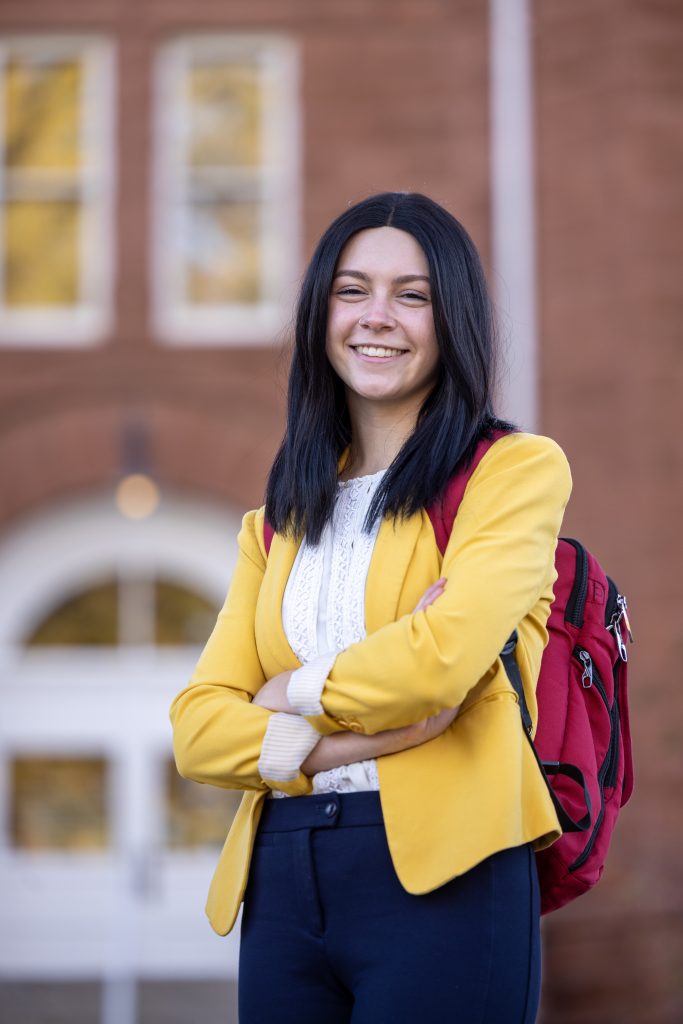
Some of these “outside-the-box” experiences have occurred for her through NAU’s commitment to experiential learning, as well as the opportunities that arose at the encouragement of faculty mentors. In conjunction with Robyn Martin, a senior lecturer in NAU’s Honors College, Kanyur completed a freshman research project about food insecurity on college campuses. The project started when Martin prompted her students to consider problems facing college students today.
“That, I think, was the moment I realized that I wanted to make sure students had resources and felt supported, because the data that I found was shocking,” Kanyur said. “If you told me as a freshman that my research paper was going to be something that I’d actually be able to make a difference for students with, I wouldn’t have believed you. But Martin giving me that confidence and advice of, ‘you’re actually able to make a difference with this,’ really encouraged me to learn more and take the opportunities that would allow me to do that.”
Martin is on the same page when it comes to recognizing the substantial impact faculty can have in the lives of their students, and notes that the connections must be developed with empathy and trust.
“Our students are undergraduates, particularly the first-year students coming to us from high school. They are intimidated, many of them, by stepping into a college class for the first time and they oftentimes see their faculty as so far above them, because they have elevated this college and university experience.”
Martin tackles this by planning field-based experiential education courses for her students, including writing classes conducted at the Grand Canyon. “We mostly go on hikes to places around Northern Arizona, and they get to talk to me in a very informal way. I mean, we’re out there hiking! We’re sweating, we’re laughing, we’re taking pictures. That is key to building trust.”
On her expectations for the outcomes of a successful student collaboration, particularly in the Honors College, Martin said that she “would like to think that they are proud of what they have completed. I would like to think that they would also take that experience and use it elsewhere in their life, not simply to check the box, get the grade and then forget about it. That’s what I hope for.”
Kanyur has taken this approach to heart in the pursuit of her degree as well as her activity in ABOR.
“Working in health has been really rewarding. And it’s something that I could see myself doing more long-term. But it’s great to be able to have the experiences I’ve had, and for a short period of time, give back to other students.”

